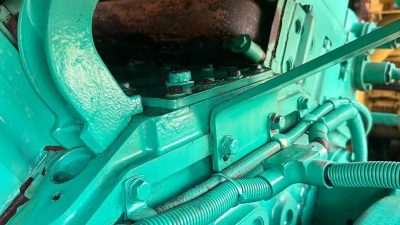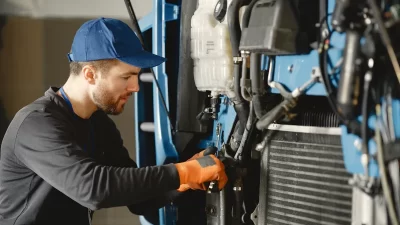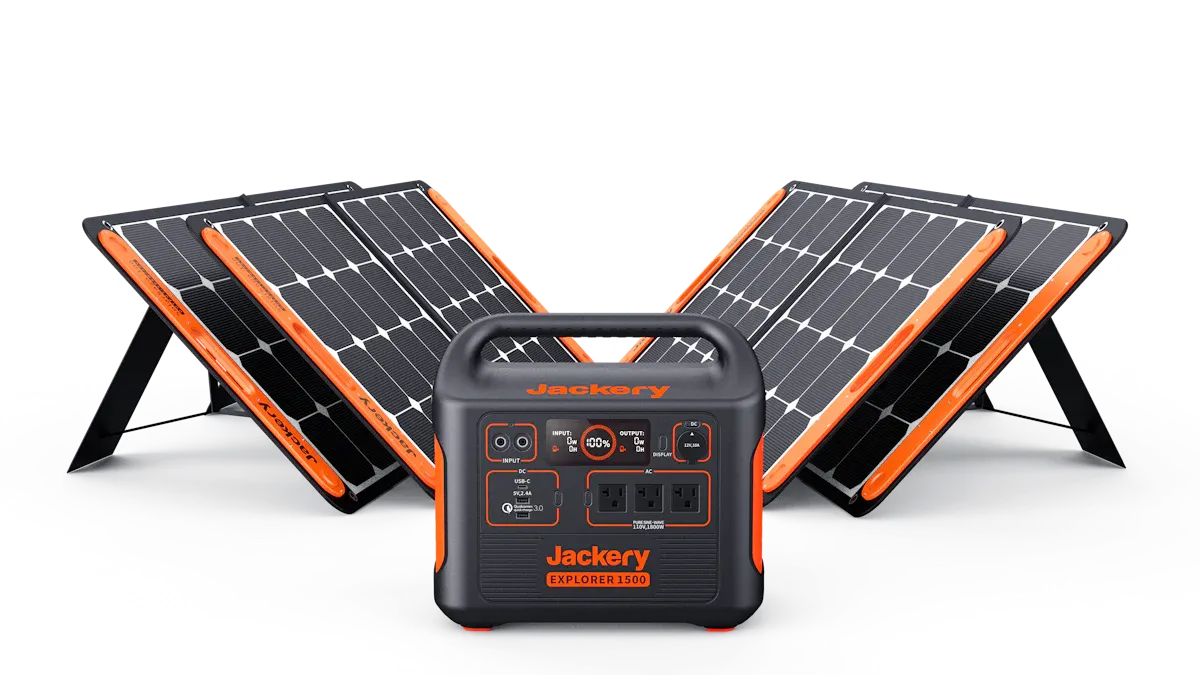
Looking for reliable power without breaking the bank? Used generators offer huge savings—sometimes up to 90% compared to buying new. You can even get like-new units with updated features, fast shipping, and flexible options:
Full calibration and new accessories
Customization possibilities
Delivery often in just two weeks
Check out the range of options below. Whether you need backup for your home, business, or something industrial, you’ll find models for every need and fuel type:
Power Segments | Applications | |
|---|---|---|
Diesel, Gas, LPG | Below 100 to 1000+ kVA | Backup, Continuous, Peak Shaving |
Take a closer look and match the right generator to your needs for peace of mind.
Key Takeaways
Used generators save you money and come with updated features and fast delivery.
Choose the right generator type and fuel based on your power needs and usage.
Check the generator’s condition, service history, and brand reputation before buying.
Consider noise level, portability, and budget to find the best fit for your situation.
Negotiate smartly, buy from trusted sellers, and maintain your generator regularly for reliability.
Used Generators: Where to Buy
Finding the right used generator can feel easy when you know where to look. You have several great options, each with its own perks. Let’s break down the main places you can shop for used generators and what you can expect from each.
Online Marketplaces
Online marketplaces give you the biggest selection. You can scroll through thousands of listings any time of year. Sites like eBay, Craigslist, and Facebook Marketplace let you compare prices, features, and brands side by side. You might spot deals on top names like Caterpillar, Cummins, Perkins, Generac, and Honda. Many sellers offer portable, diesel, dual fuel, and LPG models. You often save 15-30% because you skip the middleman. Shopping online also means you can act fast—many sellers ship quickly, so you get your generator sooner than if you ordered a new one.
Tip: Always check seller ratings and ask for recent photos or videos before you buy. This helps you avoid scams and makes sure you get what you pay for.
Local Dealers
Local dealers specialize in used generators and know what works best in your area. You can visit their shop, see the equipment up close, and ask questions. Dealers often carry hard-to-find brands and models, including commercial and industrial units. Some even offer certified pre-owned generators with warranties and financing. You get peace of mind because you can inspect the generator in person and talk to experts who can match you with the right power solution.
Auctions
Auctions can be exciting if you want a bargain. You might find live or online auctions through sites like AuctionTime or local auction houses. Auctions usually offer lower prices—sometimes 10-20% less than fixed listings. You can bid on generators from brands like John Deere, Honda, or Generac. Many auctions let you inspect the equipment before you bid, which helps you avoid surprises. Keep in mind, auctions may charge fees or sales tax, so factor that into your budget. Some auction houses, like Central Auction Group, focus on transparency and customer satisfaction, making the process smoother for buyers.
Auctions let you resell equipment quickly if you change your mind.
Remote bidding is often available, but rules can vary.
Always research the auction’s reputation and ask for detailed equipment history.
Refurbished Options
Refurbished generators offer another smart choice. These units get a full check-up, new parts, and sometimes even a fresh warranty. You can find refurbished options through factory outlets, certified dealers, or brand marketplaces like John Deere. Refurbished generators often cost less than new ones but give you extra confidence because they meet strict quality standards. Some dealers even help with import paperwork if you buy from another country, which can save you money thanks to exchange rates.
Note: Refurbished generators usually come with updated accessories and support, making them a solid pick for anyone who wants reliability without paying full price.
No matter where you shop, you’ll notice that used generators are available much faster than new units. You can often get your generator delivered in just a couple of weeks, so you’re ready for any power need—whether it’s for your home, business, or next big project.
Types of Used Generators
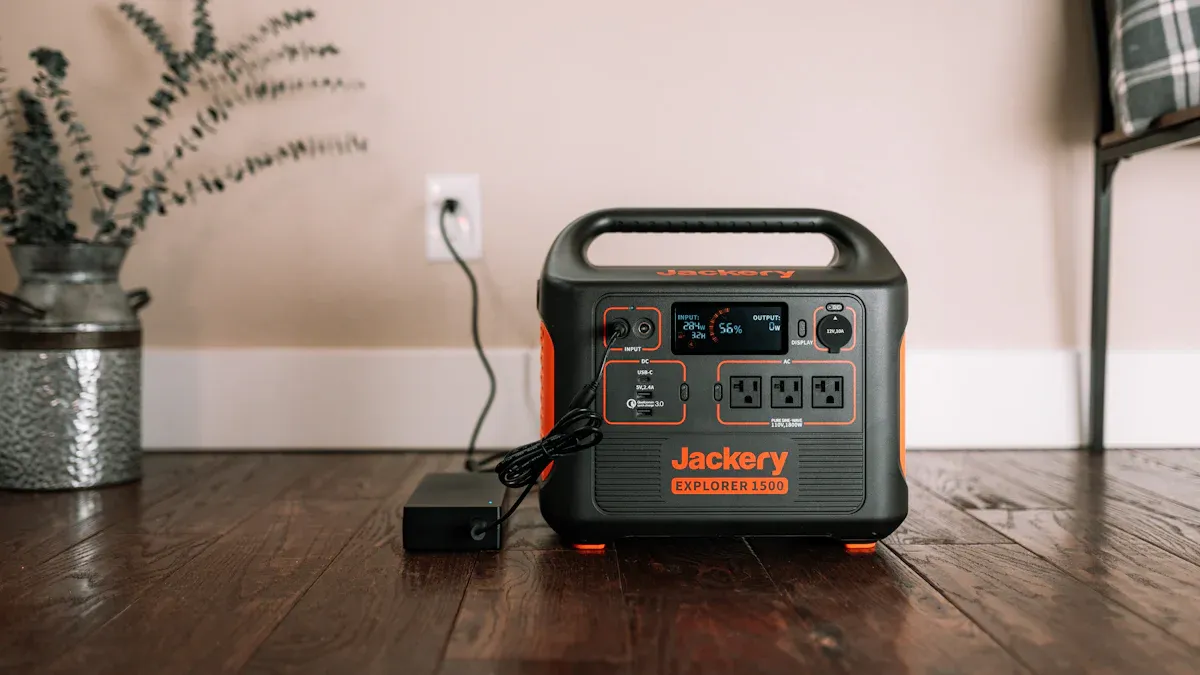
When you start looking at used generators, you’ll see a lot of choices. Each type fits different needs, so let’s break them down to help you pick the right one.
Portable
Portable generators are small, light, and easy to move. You can use them for camping, tailgating, or as a backup for your home during a short power outage. Many people like them because they are affordable and simple to use. You just fill them with gasoline, pull the cord, and you’re ready to power small appliances or tools. Portable generators are the most common in the residential market, especially in North America, where outdoor activities and storms often cause outages.
Tip: Portable generators are great for quick fixes, but they have limited power and need manual starting.
Diesel
Diesel generators are known for their strength and reliability. You’ll often find them in businesses, construction sites, and places that need power for a long time. Diesel engines last longer and use fuel more efficiently than gasoline models. They can handle heavy loads and work well in tough weather. That’s why diesel holds the largest share of the global generator market. If you want something that runs for hours without trouble, diesel is a smart pick.
Generator Type | Cost Benefits | Performance Benefits | Disadvantages |
|---|---|---|---|
Diesel | High fuel efficiency; durable | Noisy; heavy; higher emissions |
Dual Fuel & LPG
Dual fuel and LPG generators give you more choices for fuel. You can switch between gasoline and propane (LPG), which helps you save money and lower emissions. These models are becoming more popular, especially for people who want to be ready for emergencies or care about the environment. For example, Champion Power Equipment has a 3,000W dual fuel generator that’s perfect for both home and job sites. Dual fuel options are flexible and can keep running even if one type of fuel runs out.
Dual fuel generators help you save on fuel costs.
LPG burns cleaner, so it’s better for the environment.
Commercial & Industrial
Commercial and industrial generators are the heavy hitters. You’ll see them in factories, hospitals, and big events where power can’t go out. These units are large, powerful, and built to run nonstop if needed. They cost more and take up more space, but they deliver steady power for high-demand jobs. If you run a business or need backup for important equipment, these generators are a solid investment.
Note: Used generators in this category can save you a lot compared to buying new, while still giving you the power and reliability you need.
Evaluating Reliability
When you shop for a generator, you want something that works when you need it most. Not all used generators are the same. Some run like new, while others may have hidden problems. Let’s look at how you can check if a generator is reliable before you buy.
Inspection Points
Start with a close look at the generator. You want to spot any signs of trouble early. Here’s a simple checklist you can use:
Look for leaks or rust on the body and fuel tank.
Check the oil and coolant levels.
Inspect belts, hoses, and wires for cracks or wear.
Test the battery and look at the terminals.
Run the generator for 15-30 minutes. Listen for strange noises and watch for smoke.
Use a voltmeter to check voltage and frequency.
You can also ask the seller for a maintenance log. This log should show regular checks and repairs. Here’s a table that shows how often some key tasks should be done:
Maintenance Frequency | Tasks and Details |
|---|---|
Weekly | Visual inspection for leaks; Check coolant and oil levels; Test run 15-30 minutes; Record voltage, frequency |
Monthly | Load tests: 30% load for 30 min, 50% load for 30 min; Change engine oil and filter; Inspect belts, hoses |
Monthly Electrical | Test battery specific gravity; Clean terminals; Test charger; Verify voltage regulator and transfer switch |
Monthly Cooling | Test coolant concentration; Inspect radiator and hoses; Clean fins; Test temperature sensors and fan |
Tip: If you see gaps in the maintenance log or signs of poor care, you might want to look for another generator.
Service History
A good service history tells you a lot about how the generator was treated. Ask for records that show:
Oil changes every 100 hours of use
Regular load testing (like 30% load for 30 minutes)
Notes on voltage, frequency, and battery checks
Logs of any repairs or part replacements
Here’s a quick guide to what you should see in a strong service history:
Maintenance Activity | Interval / Data | Why It Matters |
|---|---|---|
Oil Change | Every 100 hours | Keeps engine running smooth |
Load Testing | 30% load for 30 min; 50% for 30 min | Proves generator can handle real work |
Inspection Parameters | Voltage, frequency, battery, coolant | Finds problems before they get worse |
Regular Logs | Runtime hours, oil, issues | Shows patterns and helps spot trouble early |
Professional Evaluations | As needed | Gives expert advice on repairs or upgrades |
If the generator has a full service history, you can feel more confident it will last.
Brand Reputation
Brand matters when it comes to reliability. Some brands have a strong track record for making tough, long-lasting generators. In a recent study, thousands of people in the U.S. said they trust brands like Generac, Honda, and DeWalt the most. These brands scored high for durability and reliability. People who buy these brands often feel happier with their choice and stick with them for years.
When you look at used generators, choosing a trusted brand can save you headaches down the road. You get better parts, easier repairs, and more support if something goes wrong.
Note: A well-known brand often means better resale value, too.
Warranty & Support
Even if you buy used, you can sometimes get a warranty or support plan. Some dealers offer short-term warranties on used generators. Others give you access to service centers or phone support. Ask the seller:
Is there any warranty left?
Can you get help if the generator breaks down?
Are spare parts easy to find?
A warranty gives you peace of mind. Support means you won’t be left in the dark if something goes wrong.
Remember: Always read the fine print on any warranty or support plan. Know what’s covered and for how long.
By checking these points, you can find a used generator that’s both affordable and reliable. You’ll feel ready for any power need, whether it’s for your home, business, or next adventure.
Buying Factors
Choosing the right generator means thinking about how you plan to use it. Let’s break down the key things you should look at before you buy.
Power Needs
Start by figuring out what you want to power. Do you need backup for your whole house, just a few appliances, or maybe tools at a job site? Generators come with different power ratings, measured in watts or kilowatts. If you pick a generator that’s too small, it won’t handle your needs. If you go too big, you might waste money and fuel. Research shows that matching the generator’s rated power to your real-world needs gives you better performance and saves you money in the long run. Always check the wattage of your main devices and add them up before you shop.
Tip: Make a list of everything you want to run at the same time. Add up their wattages to find your minimum power requirement.
Fuel Type
The type of fuel your generator uses changes how it works for you. Diesel generators handle bigger loads and run longer without refueling. They work well for businesses or places where you need steady power. Gasoline and propane (LPG) generators are easier to find and refill, making them great for home or outdoor use. Propane burns cleaner and stores longer, which helps if you care about the environment or want less maintenance.
Diesel: Efficient, powerful, good for heavy use.
Gasoline: Easy to find, best for short-term or light use.
Propane: Clean, long shelf life, lower emissions.
Portability
Think about where you’ll use your generator. If you need to move it around, look for a portable model with wheels and handles. Portable generators come in many sizes, from small units for camping to larger ones for job sites. They’re easy to transport and set up, so you can use them at home, work, or on the go.
Noise Level
Noise matters, especially if you live in a quiet neighborhood or plan to use your generator at night. Some generators run loud, while others have special mufflers or are built to be quiet. Inverter generators are usually the quietest and work well for homes or campsites. Always check the decibel rating before you buy.
Generator Type | Typical Noise Level (dB) | Best For |
|---|---|---|
Conventional Diesel | 70-100 | Construction, Industry |
Inverter | 50-65 | Home, Camping |
Propane | 60-75 | Home, Outdoor |
Budget
Set your budget before you start shopping. Remember, the price isn’t just about buying the generator. You’ll also pay for fuel, oil, and regular maintenance. Diesel models cost more up front but save money over time because they last longer and use less fuel. Gasoline and propane models are cheaper to buy but may need more care. Always think about the total cost, not just the sticker price.
Note: Regular maintenance keeps your generator running longer and helps you avoid big repair bills later.
Power Solutions
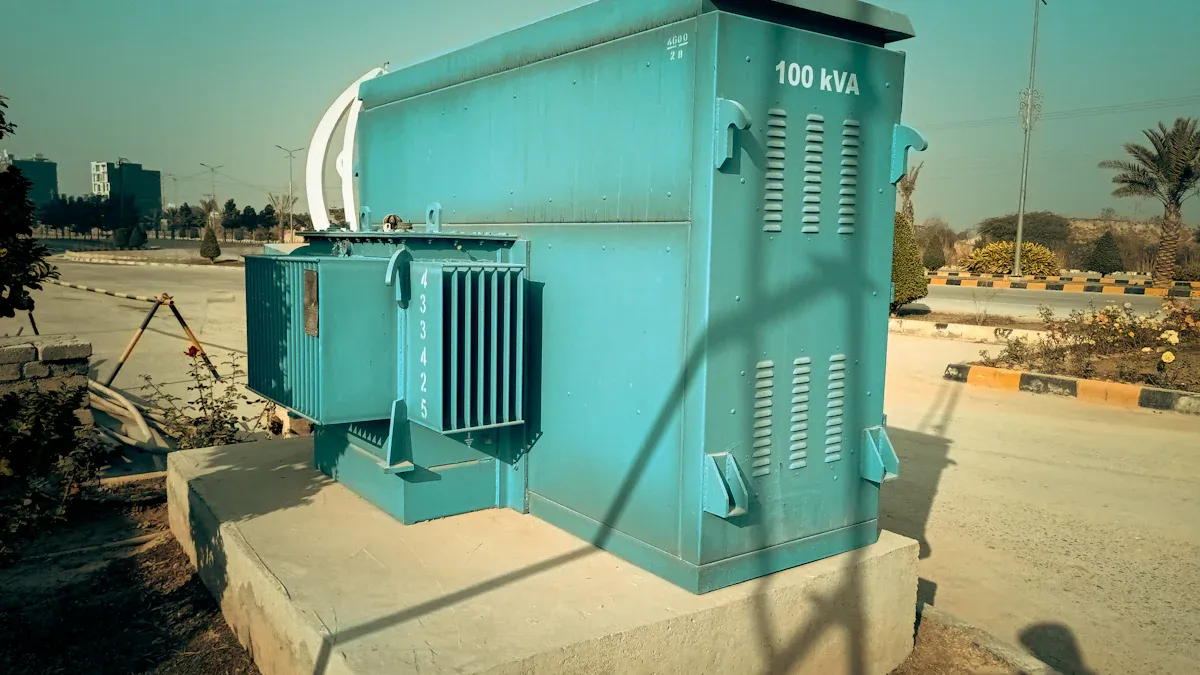
Home Backup
You want your home to stay safe and comfortable during a power outage. Standby generators can do this job well. They turn on by themselves when the lights go out. Many families use them to keep fridges, lights, and even medical equipment running. For example, Annie Streit shared how her standby generator powered her whole house, including her power wheelchair and home elevator, during a storm. If you need something smaller, portable or inverter generators can help. Inverter models work great for sensitive electronics like computers and medical devices.
Tip: Silent and small generators are perfect if you want backup power without loud noise or high costs.
Business Use
Businesses need steady power to keep running. A power cut can mean lost sales or damaged equipment. Many companies use portable generators for temporary needs, like at construction sites or small shops. Larger standby units protect data centers and hospitals. These generators help you avoid downtime, protect your equipment, and follow safety rules. You can keep your business open and your customers happy, even when the grid goes down.
Generator Type | Best For | Key Benefit |
|---|---|---|
Standby | Hospitals, Data Centers | Automatic, reliable backup |
Portable | Shops, Construction | Flexible, easy to move |
Inverter | Offices, Clinics | Clean power for electronics |
Outdoor & Recreation
Love camping or tailgating? Portable generators make outdoor fun easy. You can power lights, music, or even a small fridge. Inverter generators are quiet, so you won’t disturb your neighbors at the campsite. They are light and easy to carry. Many people choose dual fuel models for longer trips, since you can switch between gasoline and propane.
Inverter generators keep your gadgets safe.
Small, silent models fit in your car or RV.
Emergency Prep
Planning for emergencies gives you peace of mind. Some people, like Rolando Garza, pick a generator based on their most important needs. He chose a 700-watt generator and a solar panel to power his wheelchair and phone. Think about what you need most—maybe it’s medical gear, lights, or a heater. Portable generators work well for short outages. Standby units cover your whole house. If you have limited mobility, ask for help with setup and fuel.
Note: Always test your generator before you need it. Make sure you have enough fuel and know how to use it.
Getting the Best Deal
Negotiation
You want to get the best price when you buy a generator. Good negotiation can help you save money and get more value. Start by asking questions about the generator’s history, condition, and any extras. If you see small issues, use them to ask for a lower price or free accessories. Try to offer a fair price, but don’t be afraid to walk away if the deal doesn’t feel right.
Smart negotiation works best when you use a mix of strategies. For example, you can suggest different options if the seller cannot meet your exact price. Studies show that a hybrid approach—mixing your preferences with the seller’s and looking for common ground—leads to more successful deals. Take a look at this table to see how different strategies compare:
Negotiation Strategy | Success Rate | Notes |
|---|---|---|
Hybrid | Highest | Mixes your needs with seller’s; finds win-win solutions |
Fuzzy Similarity | Moderate | Looks for close matches; better than basic haggling |
Preference-Based | Moderate-High | Focuses on what matters most to both sides |
Basic | Lowest | Simple offers; least likely to work |
Tip: Stay friendly and flexible. You can often get a better deal by working with the seller instead of against them.
Timing
The right timing can make a big difference. Prices often drop at the end of a season or when new models come out. Sellers may want to clear out old stock before winter storms or summer heat waves. If you shop during these times, you might find better prices or extra perks like free delivery.
Watch for sales after major storms or holidays.
Ask dealers about upcoming promotions or clearance events.
Seller Credibility
Always check who you are buying from. A trustworthy seller gives you more peace of mind. Look for reviews, ratings, and feedback from other buyers. Ask for proof of service history and any warranty details. If something feels off, trust your gut and keep looking.
Remember: Saving money is great, but reliability and long-term value matter most. A good deal should give you both.
You can find the right generator by checking your needs, researching brands, and reviewing service history. Many buyers share how they waited, researched, and picked the best fit for their homes or businesses. Take a look at these key benefits:
Benefit Aspect | Explanation |
|---|---|
Cost-Effectiveness | Save money without losing reliability. |
Proven Reliability and Durability | Top brands offer tested, refurbished units for dependable use. |
Access to Premium Features | Get advanced features at lower prices. |
Minimized Downtime | Reliable power keeps your life running smoothly. |
Start your search today, compare options, and reach out to trusted sellers for peace of mind.
FAQ
How do I know if a used generator is reliable?
Check the service history and ask for maintenance records. Run the generator if you can. Listen for odd sounds. Look for leaks or rust. Trusted brands and sellers usually mean better reliability.
Can I use a used generator for my whole house?
Yes, you can. Make sure the generator has enough wattage for your home’s needs. Add up the power used by your main appliances. Ask a dealer or electrician if you are unsure.
What fuel type should I choose for my generator?
Pick diesel for long use and heavy loads. Gasoline works well for short-term or light use. Propane burns cleaner and stores longer. Choose what fits your needs and what fuel is easy to get in your area.
Do used generators come with a warranty?
Some used generators do. Dealers may offer short-term warranties or service plans. Always ask before you buy. Read the warranty details so you know what is covered.
How often should I maintain my used generator?
You should check oil, coolant, and battery every month. Run the generator for 15-30 minutes each week. Change oil every 100 hours of use. Regular care keeps your generator ready when you need it.
